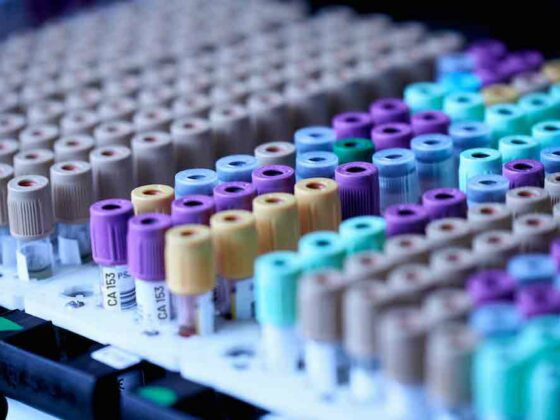Frequent aspirin (acetyl salicyclic acid) use is associated with lower ovarian cancer risk regardless of the presence of most ovarian cancer risk factors. The meta-analysis of data from two ovarian cancer consortia, published in Journal of Clinical Oncology, 22 July, found risk reductions were also observed among women with multiple ovarian cancer risk factors.
“This study, the largest to-date on aspirin use and ovarian cancer, provides evidence that frequent aspirin use is associated with lower ovarian cancer risk regardless of the presence of most other ovarian cancer risk factors,” write the authors. The study, they add, represents the first to examine effect modification by a comprehensive set of ovarian cancer risk factors.
Ovarian cancer is the fifth leading cancer killer of women, largely due to nonspecific symptoms and lack of early detection strategies. Inflammation-related exposures, such as endometriosis and pelvic inflammatory disease and circulating biomarkers of inflammation, have all been associated with ovarian cancer risk. Such findings raise the possibility that anti-inflammatory medications, such as aspirin, may lower the risk of ovarian cancer development. Pooled secondary analyses of randomised controlled trials of aspirin for cardiovascular disease (CVD) prevention have noted a decreased risk of female reproductive cancers with at least three years of aspirin use, although too few ovarian cancer cases were diagnosed to draw inferences for ovarian cancer.
In the current study, Lauren Hurwitz, from the US National Cancer Institute, and colleagues leveraged data from 17 studies (nine cohort studies from the Ovarian Cancer Cohort consortium, n=2,600; and eight case-control studies from the Ovarian Cancer Association Consortium n=5,726). The aim was to examine the association between frequent aspirin use and ovarian cancer risk, both overall and across subgroups of women with different ovarian cancer risk factors (endometriosis, obesity, family history of breast/ ovarian cancer, parity, oral contraceptive use and tubal ligation). For the studies, frequent aspirin use was defined as taking aspirin six or seven days per week, with no dose specified.
Results show that frequent aspirin use was associated with a 10% reduction in ovarian cancer risk in the cohort studies (HR 0.90; 95% CI 0.81-1.01) and a 16% reduced risk in the case-controlled studies (OR 0.84; 95% CI 0.72-0.98). A meta-analysis of both cohort and case-controlled studies found that, overall, frequent aspirin use was associated with a 13% reduction in ovarian cancer risk (RR 0.87; 95% CI 0.80-0.94).
Risk reductions with frequent aspirin use were similar across all ovarian cancer histotypes, but ‘particularly robust’ for patients with high-grade serous ovarian cancer (RR 0.86).
Consistent reductions were observed across most subgroups: for those with obesity (RR 0.79; 95% CI 0.67- 0.93), family history (RR 0.88; 95% CI 0.72-1.06), nulliparity (RR 0.83; 95% CI 0.64-1.09), oral contraceptive use ≥ five years (RR 0.91; 95% CI 0.77 to 1.08), and tubal ligation (RR 0.93; 95% CI 0.77-1.08). However, frequent aspirin use was not associated with a lower risk of ovarian cancer among women with endometriosis (RR 1.15; 95% CI 0.80-1.65).
Furthermore, risk reduction increased with number of risk factors, for women with ≥ 2 risk factors (RR 0.81; 95% CI, 0.73-0.90).
“The consistency of the frequent aspirin use ovarian cancer association across the individual case-control and cohort study populations was notable and provides strong support for a beneficial effect of frequent aspirin use on ovarian cancer risk,” conclude the authors.
Regarding endometriosis, they suggest the inverse association was likely driven by “the small number of women with endometriosis and the limited power to detect associations within this subgroup”.
To maximize the population-level benefit/ risk ratio, the authors believe that use of aspirin for ovarian cancer chemo prevention may best be targeted to women at higher risk with two or more ovarian cancer risk factors.
“Since aspirin helped people who had two or more risk factors, we hope patients and clinicians can use this research to have an informed conversation when it comes to potential preventive measures. Individuals should consult their health care providers before beginning new medications in order to most appropriately balance any potential risks with the potential benefits,” says Britton Trabert, one of the investigators (Huntsman Cancer Institute, at The University of Utah).












